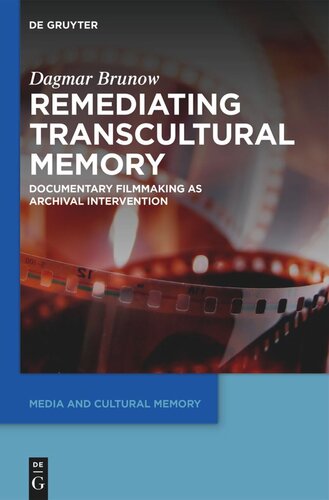

Most ebook files are in PDF format, so you can easily read them using various software such as Foxit Reader or directly on the Google Chrome browser.
Some ebook files are released by publishers in other formats such as .awz, .mobi, .epub, .fb2, etc. You may need to install specific software to read these formats on mobile/PC, such as Calibre.
Please read the tutorial at this link: https://ebookbell.com/faq
We offer FREE conversion to the popular formats you request; however, this may take some time. Therefore, right after payment, please email us, and we will try to provide the service as quickly as possible.
For some exceptional file formats or broken links (if any), please refrain from opening any disputes. Instead, email us first, and we will try to assist within a maximum of 6 hours.
EbookBell Team

4.7
96 reviewsThe impact of digital global media, geopolitical changes and migration demands new theorizations within memory studies. Despite the growing field of media memory studies, the impact from film and media studies has been scarce within memory studies. This unique study offers new theorizations of three crucial concepts for media memory studies: remediation, transculturality and the archive.
This book takes a closer look at the media specificity of archival footage and how it is adapted, translated and appropriated. In its original approach this work reflects upon the role of documentary film images for the construction of memory. By merging film and media studies with memory studies the work offers multiple theoretical and methodological approaches for everyone interested in the heritage of audiovisual media: film and media scholars, memory scholars, historians, art historians, social scientists, librarians or archivists, curators and festival programmers alike.